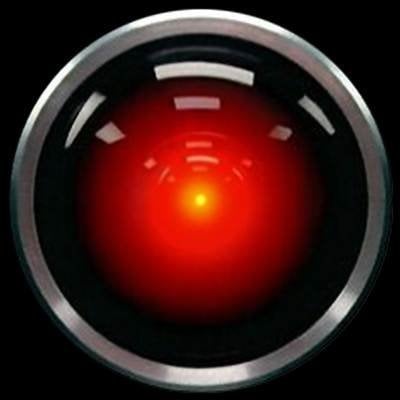This is a bit of an Ask Historians question.
I’ve been reading about the Japanese surrender on Wikipedia, and one thing I thought was strange was that the post-war occupation of Japan was largely handled only by the US under MacArthur. The original plan during the war was apparently for the Allies to divide it, but somehow the plan changed. Stalin allegedly wanted to occupy Hokkaido, Japan’s northern island, but Truman was opposed and it didn’t happen.
Contrast this to Germany (an East-West split than lasted for decades) and Austria (an East-West split, but the Soviets didn’t block full Austrian independence after a relatively short period. In Asia, the Japanese-controlled areas were mostly returned - China received Taiwan, coastal China in the south and east and Manchuria in the northeast. The Soviet Union retook Sakhalin island, just north of Hokkaido. Korea had been occupied by Japan for a few decades, and rather than Japan, it was Korea that was split between the Soviets and the US and shortly after became DPRK and ROK, transitioning into the Korean War as we know it, and the Korean peninsula is still split.
Japan, I think, fared reasonably well - the US were largely gone within ten years (but with a presence of military bases), and even during the occupation, Japan still technically governed themselves. I think it could have potentially gone much worse if the Soviets were involved, but the reasons for Soviet non-involvement are not very clear.
The western Allies and Soviets both actively took Germany, coming in from either side and meeting in the middle. They split the country because they were already there. The Soviet Union never really made it to Japan proper. They took over Manchuria and Japan surrendered ASAP to the US alone once it became obvious that the only alternative was to surrender to both powers later and likely be split like Germany.
It’s worth highlighting that this was the immediate impetus for surrender. The atomic bombs were basically non-factors.
Pretty much this. When the news of the first atomic bomb reached high command, they treated it like any other bombing run. When news of the soviets formally declaring war on Japan reached them, there was an urgent meeting of the high council.
The USA did maintain a contingent of troops in Japan for some time, as did the UK, both to ensure Japan obeyed them and to make the soviets think twice before deciding to invade, as that would lead to a direct confrontation of USA x USSR. Japan was also used a staging point for USA troops some years later, when the Korean War began
I would like other opinions on this, maybe it should be its own post somewhere, and please do not think that I am in any way excusing the horror of the bombs dropped on Hiroshima and Nagasaki, but what do people think of the idea that if the U.S. had not dropped those bombs, a larger-scale nuclear exchange, possibly between the Soviets and the U.S., would have happened because no one would have seen the consequences in 1945.
Again, not an excuse for what happened. I just wonder if that was what stopped a future nuclear exchange.
what do people think of the idea that if the U.S. had not dropped those bombs, a larger-scale nuclear exchange, possibly between the Soviets and the U.S., would have happened because no one would have seen the consequences in 1945.
I still think the use of the atomic bombs on Japan was inherently immoral and unjustifiable, but if I’m searching for at least some silver lining, I do think it’s almost certainly true that if those two comparatively small bombs weren’t dropped then, more and larger bombs would have been dropped later.
Speculative history is just that, speculation. My guess is that, if not Japan, then Korea would’ve been the “field test” of nuclear weapons, since it was the first indirect conflict between the two major power blocs
Full disclosure, I have no idea what I’m talking about.
I don’t know if it would have been a larger scale exchange, but I think that it would have affected the US population more, as it may have been on US soil.
Had USA not sort of kinda of forced japan’s hand, with all the restrictions/resource cutoff, it’s possible none of it would have happened at all. Japan was in no way innocent, but USA had a hand in it happening the way it did, and then some.
By “Japan proper”, do you mean Honshu? I think yours is a good answer, but it still feels a bit weird. The Soviets invaded South Sakhalin in mid-August 1945 and finished on 25 August. From Sakhalin to Hokkaido looks about 30 miles. It wasn’t until 28 August that any US forces landed in Japan (excluding Okinawa). So I feel that the Soviets were in a good position to also land in Japan, assuming they had the numbers and transport means.
There’s also a section in the wiki article (https://en.wikipedia.org/wiki/Surrender_of_Japan) about how Japan were trying to get the Soviets more involved in the surrender negotiations in the hope that they could avoid unconditional surrender, but the Soviets were simply stalling so that they could maneouver into position in the Far East.
The division of Korea as also a bit weird in that they agreed to split across the 38th parallel, but the Soviets got to that line a few days ealier than the US, but upheld the agreement and didn’t go any further.
I’m not really concerned at all with when Americans landed in Japan. The US unilaterally established air superiority over Japan and had successfully blockaded the country, bleeding it dry of oil. The Japanese mainland was functionally militarily defeated prior to any land forces making it there.
Because the Soviet contribution to the war effort was too little and too late for them to have earned a major seat at the table.
Theres a history matters video on it.
Found it - https://youtube.com/watch?v=yOWX9LVUt2w
It says that the US did most lf the fighting, so felt entitled to take the lion’s share and were the only ones with the A-bomb so felt they could dictate what they wanted. And the Allies were not in a good financial position to sustain another occupation. It makes some degree of sense, but I don’t understand why the exact same arguments didn’t apply to Korea just across the sea.
It was, though not in the way you may be thinking - even so, Okinawa was a US territory until the seventies and still houses several bases.
Because Japan didn’t want to become a Communist state. Japanese people have a real bad hated of Communism. Look up Otoya Yamaguchi to see it.
That’s a very simplified view of what the US did to postwar Japanese politics. Leftism was on the rise until https://en.wikipedia.org/wiki/Reverse_Course and https://en.wikipedia.org/wiki/Red_Purge
The Japanese communist party was fairly strong before the fascists took over, I think it’s more accurate to say that the Japanese government had a very strong fear of surrendering to the USSR, since the Soviets would have 100% executed the Emperor and probably most of the upper military leadership.
The act of assassination (and so many decades ago too) doesn’t reflect the broad opinions of an entire country.
Makes sense. It would be like saying people didn’t like Kennedy, because somebody shot him. People loved Kennedy.








